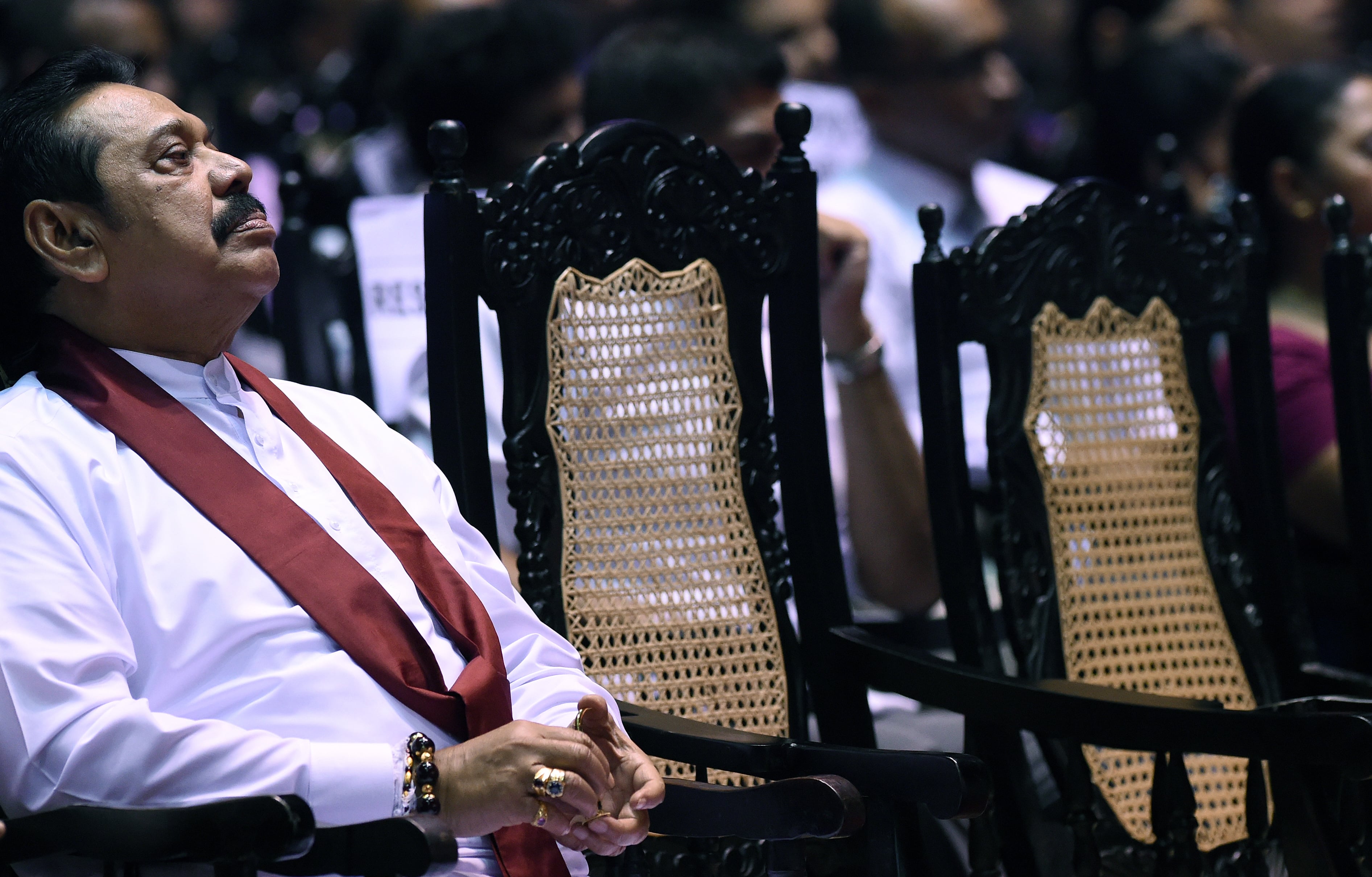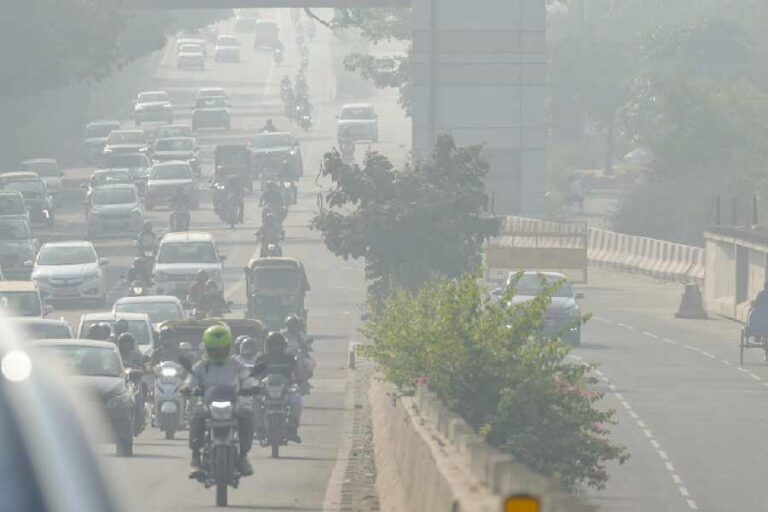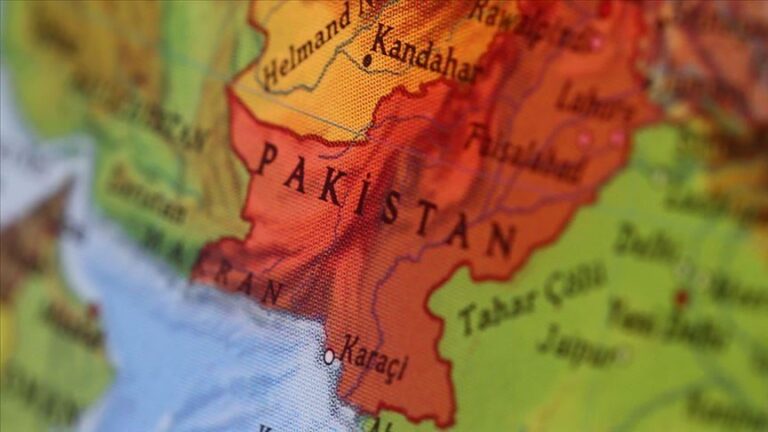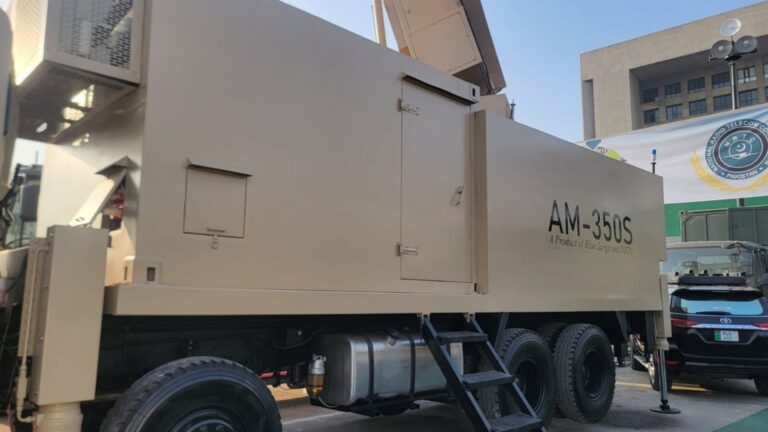
Source: AFP
Hamzah Rifaat Hussain
Chili powder, barbs being traded, harsh rhetoric and a deeply polarized island characterized Sri Lanka’s political landscape in the past week or so. With Mahinda Rajapaksa, the sole architect of the demise of the Lanka Tamil Tiger Eelam insurgency becoming Prime Minister, President Maithripala Sirisena has taken a step which shocked many and angered even more. Sirisena who was initially considered to be a reformer and a stark contrast to his predecessor is now viewed as an opportunist who wishes to weigh in both his opposition and his supporters to consolidate power. This current crisis is damning given how the island is still fresh from religious clashes and ethnic tensions after the LTTE was dismantled in 2009.
The decision to fire a sitting Prime Minister, Ranil Wickremesinghe and asking the parliament to go home is considered a violation of the constitution, as pointed out by the Supreme Court of the country. With the parliament passing a subsequent ‘no- confidence’ motion against the appointed Rajapaksa and the ousted Prime Minister refusing to leave his residence; barbs and violence were bound to take place as both sides would not relent as far as ceding power is concerned. In his 2015 Presidential Election campaign, Maithripala Sirisena had promised that the 18th amendment in the constitution which gave the President unbridled powers was to be repealed and the 19th amendment, more specifically 19(A) in the constitution was to become a reference point. The decision to sack a sitting Prime Minister triggered this constitutional crisis and is viewed by many as a blatant violation of the promises that Sirisena had made in his campaign prior to winning the elections in 2015.
The Rajapaksa factor however, contributes to the bad taste surrounding this decision. Despite his early mass appeal in terms of destroying the decades long Tamil insurgency that had resulted in thousands of deaths in the island and contributed towards ethnic tensions between the Sinhalese, Tamils, Moors and Christians in the island, Rajapaksa has had a very controversial profile. He had been accused of running not only a personality cult across Sri Lanka but also of crass nepotism, cronyism, mass corruption and of cultivating close ties with China to the detriment of Sri Lanka’s strategic interests. Once hailed as a country with the highest standard of living in South Asia, the island’s economy suffered severe shocks at the end of his term. Rajapaksa ensured that China would provide Sri Lanka with extensive loans for economic development. Colombo was unable to repay the loans . Chinese interference was not only political but also economic in nature with funds flowing just prior to the elections around the former President’s circle. Funds were dished out to Buddhist monks who supported his campaign trail and were used for Rajapaksa’s promotional campaign. The Sri Lankan economy suffered; mass corruption in his inner circle was witnessed and his opposition was emboldened.
His brother, Gotabhaya Rajapaksa was also appointed as Defense Secretary without any elections for the post and his eldest brother, Chamal Rajapaksa was appointed as Speaker of the Parliament of Sri Lanka from 2010 to 2015. Estimates also put the total budgetary control of the Rajapaksa family at 70% during the former President’s rule. The cult of the Rajapaksa family was also visible in the form of crackdowns on press freedom. Frequent media blackouts on issues such as war crimes committed by the Sri Lankan Armed Forces during the operation against the LTTE or religious riots taking place in Aluthgama in 2014 were witnessed. Press freedom, muzzling out the opposition and establishing the Rajapaksa family as the most powerful force in the island not only contributed to his unpopularity among the masses but also led to his demise in the Presidential elections of 2015.
Sri Lanka is an ethnically and religiously diverse country with a potpourri of different cultures, religions and ethnicities living together in the island for decades. The country has had a troubled history however, with the 1983 riots, sporadic crackdowns against the Christian and Muslim populations as well as attacks by the LTTE on predominantly Sinhalese targets threatening the fabric of peaceful coexistence throughout the course of its history. That said, under Rajapaksa’s government, ethnic tensions became more pronounced. The BBS or the Bodu Bala Sena which in Sinhalese translates into ‘ Buddhist Power Force’, gained significant momentum during his tenure, as a fringe group which polarized communities through violence. The BBS is led by the controversial monk Galagoda Aththe Gnanasara, who is notorious for his hate speech and rhetoric against non- Sinhalese groups in the country such as Muslims and Christians. In fact, the Aluthgama riots in 2014 and the more recent riots in Ampara district in 2018 which targeted Muslims are widely believed to have been orchestrated or at least fueled by the BBS with Gnanasara being the political voice. In addition, Gotabhaya Rajapaksa, the former President’s brother had praised the monks of the BBS for ensuring peace in the island and had attended many of its events. The fact that in both the 2014 and 2018 riots, a media blackout was witnessed and criticism was directed at the international media and community for castigating Sri Lanka instead of tackling issues domestically, is a clear indication that the Rajapaksa government was divisive, controversial and polarizing.
The violence which accompanied the 2018 constitutional crisis in the island must hence, be viewed in context of the appointment of Rajapaksa by Sirisena, and especially with the latter being billed as a reformer who would develop the island’s economy, move away from China, focus on development and promote ethnic and religious cohesion in Sri Lanka. Sadly, with Ranil Wickremesinghe claiming that he holds a majority in the parliament and opposition parties refusing to acknowledge Sirisena’s move of dissolving the parliament, the constitutional crisis is not likely to die down easily. The reactions however, are more about the legacy of a figure who had failed to promote economic development, instilled a culture of cronyism and nepotism and contributed towards ethnic tensions in a land which was once one of the most popular tourist destinations in the world. Sri Lanka’s image of a peaceful, calm and beautiful island, boasting one of the highest standards of living in a region plagued by crises, nuclear weapons and tensions is in serious jeopardy. Things cannot improve unless and until controversial figures are kept away from politics, the constitution is followed in letter and spirit and development of the island is considered to be a key priority. Anything less, would simply lead to a simmering of the crisis.
Hamzah Riffat Hussain is a Lecturer at the Air University, Islamabad.







